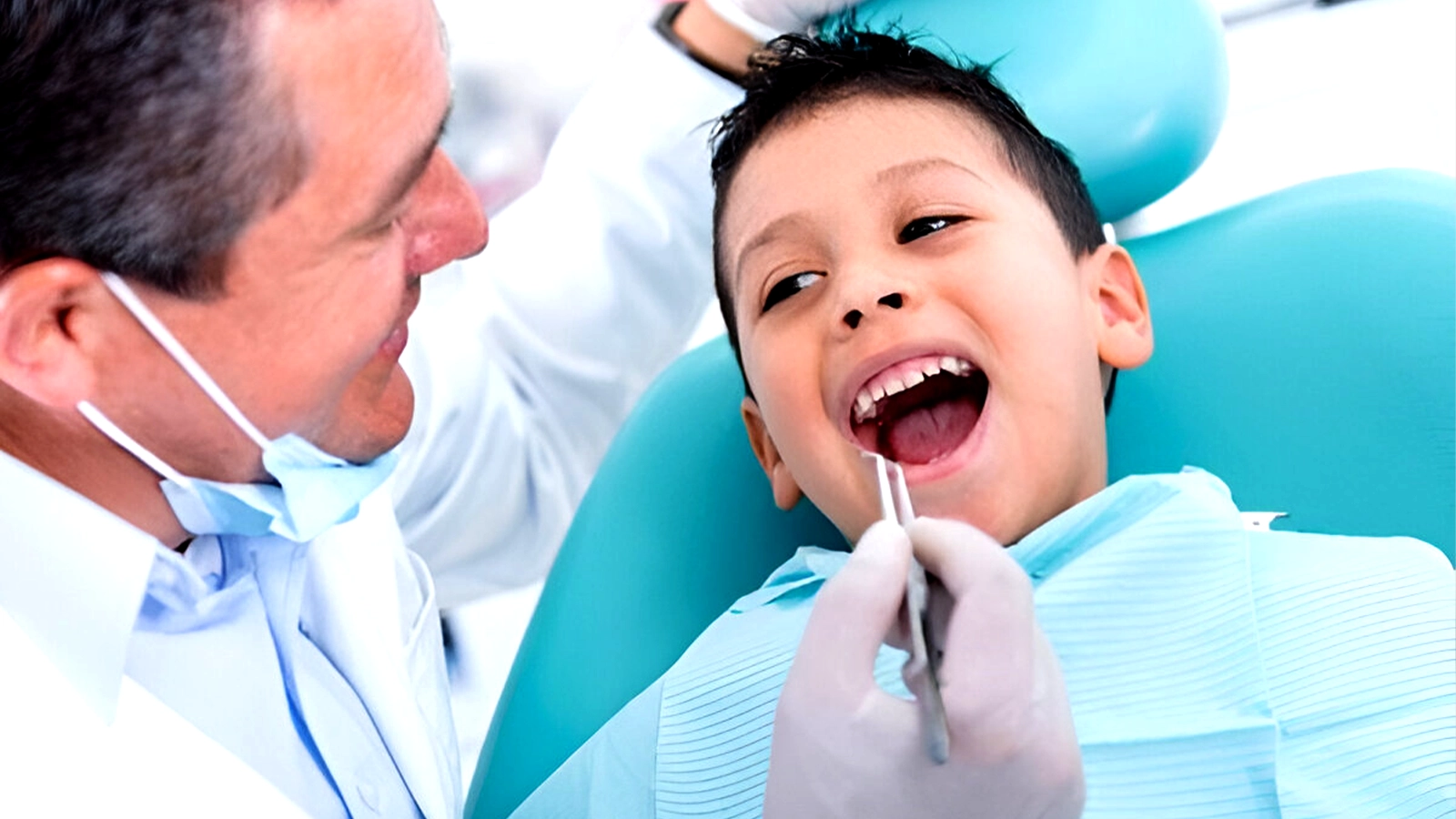Teeth sensitivity is very common among adults as well as children. But the difference is children seldom realize the difference between sensitivity and pain. Sensitivity in layman terms can be described as a shock to teeth which is very uncomfortable when having cold or hot drinks or food items. Early detection and treatment as recommended by a dentist is very important.
Understanding Tooth Sensitivity in Children
What is Tooth Sensitivity?
Tooth sensitivity can be described as a shock like pain which is very fast and can stay on for a few seconds. It creates an uneasiness while having cold or hot foods or drinks. Tooth layers are enamel, dentine and pulp. The dentin layer is a sensitive layer. And sensitivity actually occurs when the tooth decay or tooth wear reaches the dentin layer.
Why it’s Important to Address Tooth Sensitivity Early
Teeth sensitivity is an early sign of cavity or tooth decay or tooth wear. It is better treated at the earliest since if left untreated it can lead to pain. So whenever a child complains of sensitivity, it is better to be addressed at the earliest to prevent further complications by consulting a Pediatric dentist and if treatment is recommended.
Common Signs of Tooth Sensitivity in Children
- Complaints of Pain or Discomfort
Children do not know how to explain sensitivity. So the common signs are avoidance of food owing to fear that pain can occur and during brushing children tend to avoid brushing that area and also pain while having hot or cold foods.
- Changes in Eating Habits
Children tend to change eating habits when they have pain or sensitivity. The foods they have commonly will be refused or not eaten at all.
- Complaints of Sensitivity to Temperature
Tooth tends to be very sensitive to hot or cold foods. So children tend to avoid icecreams, sour candies,etc.
- Increased Irritability or Distress
It is very common that when children are asked to brush their teeth, the parents notice fussiness or irritation due to brushing and if they complain of tooth pain, it can be a sign of tooth sensitivity or pain.
- Visible Signs of Tooth Damage
Tooth damage also causes tooth sensitivity, signs of worn off teeth, eroded teeth can be positive indications of tooth sensitivity.
Common Causes of Tooth Sensitivity in Children
- Enamel Erosion
Soft or aerated drinks are the main causes of enamel erosion in children. After enamel gets worn out, the dentine layer gets exposed, which aggravates the tooth sensitivity.
- Tooth Decay (Cavities)
Due to sugary diet and improper tooth brushing, tooth cavities can occur in children which also mostly leads to tooth pain rather than sensitivity.
- Teething and Gum Recession
Teeth grinding is very common in some children. This is also a very common reason for wearing off the tooth. Such conditions must be addressed at the earliest.
- Dental Trauma or Injury
Dental trauma or injury if mild and leads to enamel chipping off then that can cause tooth sensitivity.
- Use of Incorrect Toothbrushes or Techniques
Aggressive brushing can also cause tooth sensitivity. So utilising medium or soft brush twice daily is the optimal method to brush your teeth.and also your child’s teeth.
Preventing Tooth Sensitivity in Children
- Teach Good Oral Hygiene Habits
As soon as the milk teeth erupts , tooth brushing must begin for a child. Teaching proper oral hygiene habits is very essential in avoiding dental problems like dental cavity, teeth sensitivity and teeth pain. - Regular Dental Check-ups
Regular dental checkups ( twice a year, preferable from the age of 4) by a Pediatric dentist is very essential - Protecting Teeth from Injury
During contact sports it is very essential to use mouthguards for children to avoid the risk of dental injury. - Healthy Eating Habits
Always promote a healthy diet with fruits, vegetables, and calcium and Vitamin D rich foods like milk, cheese, paneer. It is always good to avoid sugary snacks. - Avoiding Abrasive Toothpastes or Brushing Too Hard
It is not advisable to use tooth powder and never brush too aggressively. For children with milk teeth, it is always recommended to brush in circular motion on the sides of the teeth and linear motion while brushing the chewing tooth surfaces.
Always keep in mind Tooth Sensitivity is one of the first signs of tooth damage. If seen in children, the parents must be vigilant and consult a dentist. Early detection can help in treating the patient with ease and not much complications. Prevention is always better than Cure , so always take care of your teeth by following proper brushing, having a proper diet, and avoiding injuries. Proper dental care now can ensure better oral health in the future for your child. For any expert opinion, you can consult us at Dr. Bobby’s Dental Clinic
FAQ
- How do you treat sensitive teeth in children?
Depending on the condition appropriate treatment can be undertaken. Tooth cavities can be filled. Anti sensitive paste is not recommended for children unless it is very severe.If the cavity is very deep , Pediatric consultation must be undertaken for the appropriate treatment.
- How to stop sensitive teeth pain immediately?
For emergency or severe situations, painkillers can help. If the sensitivity is due to any food or drink, completely avoid it unless the treatment is recommended. What is the difference between tooth pain and tooth sensitivity?
Tooth pain is usually an aching type of pain and duration can be for long. Tooth sensitivity is a shock type of pain and mostly of very brief duration. Tooth pain can occur randomly but tooth sensitivity can occur when you have either cold foods or drinks.How can I test my teeth sensitivity at home?
If you suspect tooth sensitivity, the best home test is to take ice and place it on that tooth. Normal tooth will feel a mild sensitivity but a sensitive tooth will experience immediate shooting sensitivity.


